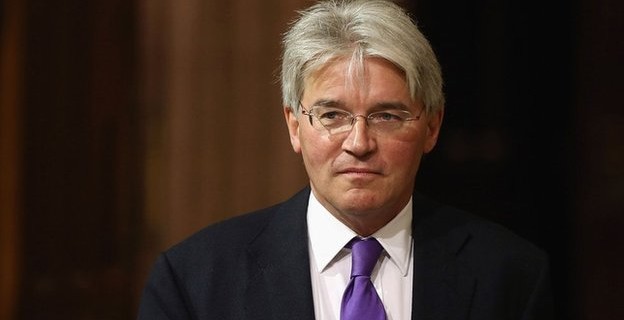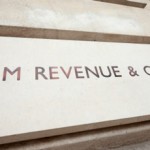MP Andrew Mitchell invested in scheme HMRC says avoided tax

Former government chief whip Andrew Mitchell has invested in a high-profile film financing company considered to be a tax avoidance scheme by HMRC.
Tax collectors say the scheme’s investors can expect to receive big tax bills in the coming months.
Mr Mitchell is best known for resigning from the government in October 2012 over a argument with some Downing Street policemen – later dubbed “Plebgate” – a chain of events that has left him locked in a series of high profile libel actions.
In the mid-2000s he invested in a vehicle called Ingenious Film Partners 2.
According to its promoters, this was a scheme that encouraged people to invest in British film. But, according to the Revenue, it was designed to generate inappropriate amounts of tax relief for its investors.
This week, HMRC listed Ingenious Film Partners 2 as one of 1,200 candidates for “accelerated payment notices”.
This is a power that takes effect this week, meaning that investors can be asked to repay all tax that HMRC thinks they should have paid before going to court. Upon receiving the notice, the bill must be settled within 90 days.
Tax enforcement is now a very high political priority.
That is why the coalition has given HMRC more money for enforcement and new powers. Experts say that schemes that were left alone in previous years – some long-established – are now being caught in the HMRC dragnet.
Other senior establishment figures to invest in the scheme include Lord Waldegrave, the former chief secretary to the Treasury, and Lord Grade, the former chairman of the BBC.
All said they had invested in the scheme to support the film industry.
Ingenious, the company that runs Ingenious Film Partners 2, said: “HMRC has failed to distinguish between commercial businesses and tax avoidance schemes and have, without proper consideration, deemed all film arrangements to be tax schemes.”
As a minimum, investors in Ingenious Film Partners 2 could put in £36,000. If they put in that much, Ingenious would then loan them a further £64,000 to invest, taking their stake up to £100,000. That would be used to buy shares in film productions which, in their first year, created a roughly £90,000 loss.
Top-rate taxpayers who invested in the scheme could choose to write off that loss against their taxes.
‘Wholly unfair’
So in return for putting in £36,000 in cash, they would get about the same amount in tax relief very fast – and end up owning a £100,000 stake in a group of films.
So long as the films made enough to service the debt, Ingenious’s structure would allow people to make a long-term investment without locking up their cash.
According to court documents from January this year, HMRC disputed “that the activities of the partnerships constituted the carrying on of a trade and dispute that expenses incurred in the course of their businesses related wholly and exclusively to the carrying on of any trade”.
If it is challenged and HMRC wins a subsequent case, the revenue can keep the money. If it loses, it must refund investors. Ingenious said: “A tax tribunal called at Ingenious’ request… is now scheduled for November. Ingenious remains confident of the outcome.”
Ingenious is well-known in British media. It really does support films. Mr Mitchell invested in films including X-Men: The Last Stand, Garfield: A Tale of Two Kitties and Sunshine. He also backed a less well known film called Virgin Territories.
Ingenious has also, through other vehicles, invested in Avatar, the Best Exotic Marigold Hotel, Girl with a Pearl Earring, Vera Drake, Shaun of the Dead, Hot Fuzz and Hotel Rwanda.
Furthermore, the structure of the scheme means that investors do pay tax on any income they receive from the films.
Ingenious says its schemes have generated a £1bn of such income. Ingenious said: “There has been a major change of position by the government driven by a rather crude attempt to generate cash for the Exchequer in a wholly unfair and unjust manner.”
Newsnight asked how much Mr Mitchell, Lord Waldegrave and Lord Grade invested, but they did not respond. It is possible that they have already reached a settlement with HMRC to repay tax reliefs. They may never have actually used the relief. But they might also be facing bills for tens of thousands of pounds of tax.
Either way, it is likely to be embarrassing – particularly for a politician like Mr Mitchell who still wants a big job. He had been touted as a candidate to be Britain’s European Commissioner.
Mr Mitchell said: “When the last Labour government introduced tax incentives to invest in the British film industry, along with many other investors I did so through Ingenious Films. I resigned from Ingenious when I was in government and always pay all tax when due.”
Lord Grade said: “I can confirm that I am one of the original investors in the Ingenious Film Partners 2 LLP Fund. The Labour government at the time promoted a policy to stimulate investment in the British film industry through tax incentives. The Ingenious Fund gave effect to this policy…”
Lord Waldegrave said: “It was presented as a genuine film investment partnership. I was told they’d financed Avatar and other films. It never occurred to me it was tax avoidance. The Revenue haven’t been in touch yet. If the Revenue contact me then I would pay it back.”
Source: bbc





























